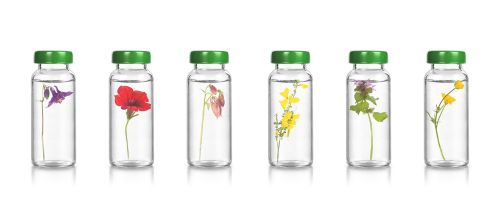Herbal supplements can range from single herbs to complex mixtures of plant extracts, often sold as capsules, tablets, liquids, and powders. Many individuals turn to these supplements as a natural alternative to pharmaceutical drugs, but it’s essential to weigh their benefits and risks. People often perceive these products as safe because they come from nature. However, they can have strong effects on the body, and some can interact with prescription medications.
Herbal Products Benefits
Herbal products carry numerous benefits, with the primary one being their natural origins. Since they are typically made from plants, they often have fewer side effects than prescription drugs. Moreover, they can provide health benefits like boosting the immune system, improving digestion, relieving stress, enhancing memory, and aiding in detoxification.
Some herbs have been scientifically studied and found effective for certain conditions. For example, Echinacea may help in boosting immunity, St. John’s Wort can aid in treating mild depression, and Ginkgo biloba can enhance memory and cognitive functions.
However, it is essential to remember that these benefits are not universally guaranteed. Effectiveness can vary greatly depending on the quality of the supplement, the way it’s used, individual responses, and the specific health condition it’s used for.
Reason Behind Popularity of Herbal Supplements
The use of herbal supplements has gained popularity due to their perceived benefits:
- Natural Ingredients
- Wide Range of Uses
- Holistic Approach
- Accessibility
Dangerous Herbs – Risks of Herbal Supplements
Despite their potential benefits, some herbs can be dangerous. They can have harmful effects if consumed in large amounts, used over a long period, or combined with other herbs or synthetic drugs.
While herbal supplements provide several benefits, they also carry potential risks:
- Lack of Regulation: In many regions, herbal supplements are not as tightly regulated as pharmaceutical drugs, leading to concerns about their safety, efficacy, and quality.
- Potential Side Effects: Some herbal supplements can cause adverse effects, ranging from mild (such as digestive issues) to severe (like liver damage).
- Interactions with Medications: Herbal supplements can interact with prescription medications, potentially reducing their effectiveness or causing harmful side effects.
- Misleading Claims: Some manufacturers make unverified or exaggerated claims about the health benefits of their products, which can mislead consumers.
Moreover, Comfrey and Kava can cause serious harm to the liver. Ephedra, a once-popular weight loss supplement, has been linked to heart problems and stroke.
Some herbs can interact negatively with prescription medications. For instance, St. John’s Wort, which is often used for depression, can reduce the effectiveness of birth control pills, heart medications, and certain HIV and cancer drugs. Similarly, Gingko Biloba and Ginseng can interfere with blood thinners, causing potential complications like excessive bleeding.
Pros of Alternative Medicine
Alternative medicine, including herbal supplements, offers several advantages. It emphasizes preventative care and holistic treatment, focusing on the entire individual rather than just the disease.
Alternative medicine, encompassing practices like acupuncture, homeopathy, and naturopathy, offers several advantages:
- Patient-Centered Approach: Many forms of alternative medicine take a personalized, patient-centered approach that looks at the individual’s overall health and lifestyle.
- Emphasis on Prevention: Alternative medicine often emphasizes prevention and maintaining a healthy lifestyle instead of merely treating diseases.
- Natural Therapies: Like herbal supplements, alternative medicine often uses natural therapies, which some people prefer over pharmaceutical drugs.
This approach often leads to fewer side effects, as the treatments are natural and less invasive. Alternative medicine can also provide options for patients who have not found relief from conventional medical treatments. Additionally, alternative therapies can often be tailored to the individual’s needs, allowing for a more personalized approach to health and wellness.
Risks and Interactions with Prescription Medications
While there are undeniable benefits to herbal supplements and alternative medicine, they are not without risks. Aside from the potential for harmful effects from certain herbs, these products are not as tightly regulated as prescription drugs. This lack of regulation can lead to inconsistencies in quality and effectiveness and in some cases, contamination with other substances.
Interactions with prescription medications can also be a significant concern. Herbal supplements can increase or decrease the effects of many commonly prescribed drugs, potentially leading to ineffective treatment or dangerous side effects. It’s crucial that individuals discuss their use of herbal supplements with their healthcare provider to avoid these potential interactions.
Alternative Medicine and Herbal Supplements: What are the Safe Practices to Use them?
- Research: Before embarking on the journey of herbal supplements or alternative therapies, it’s crucial to thoroughly research their effectiveness, safety profile, and potential side effects. Various resources can aid your investigation, including trustworthy health websites, scientific publications, and academic journals. Understanding the nuances of these treatments allows for a more informed decision-making process, promoting health and wellness while mitigating potential risks.
- Consultation: Healthcare providers serve as vital resources when considering new treatments. Prior to starting any herbal supplement or alternative therapy, it’s critical to consult with a medical professional. They can offer personalized advice, taking into account your current health status, lifestyle, and any other medications you might be taking. Their expertise ensures that you adopt a treatment plan that aligns with your health goals and minimizes potential risks.
- Transparency: When it comes to health, honesty is key. It’s crucial to maintain open communication with your healthcare provider, revealing all the medications and supplements you are using, including those in the realm of alternative medicine. This transparency allows your healthcare provider to monitor potential interactions, adjust dosages, and provide the best possible integrated care.
- Quality Products: The market for herbal supplements is vast, with varying degrees of quality. To ensure safety and effectiveness, opt for supplements from reputable sources. Products tested by independent third-party organizations offer a guarantee of their quality and purity. While these products may sometimes be more expensive, investing in high-quality supplements contributes to better health outcomes and reduces the risk of unwanted side effects.
Conclusion
Herbal supplements and alternative medicine offer an appealing natural route toward health and well-being. Their benefits encompass a wide range of uses, a holistic approach, and accessibility. However, users must remain aware of potential risks such as dangerous herbs, interactions with prescription medications, and the limitations of alternative therapies. By adopting safe practices and maintaining open communication with healthcare providers, individuals can make informed decisions that best serve their health needs.










